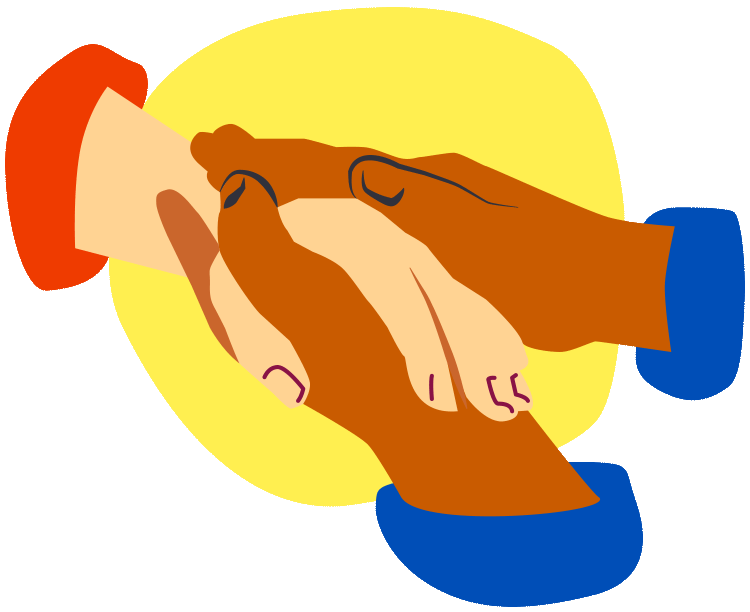Treatment and intervention
Other support options
The other treatment options that you might find helpful are:
- Support from others with similar experiences to you
- Self management
- Support and therapies for work, education and things that you do
- Physical health support.

This support includes hearing voices network groups, peer support and spiritual and faith-based support.
Hearing voices network groups are run by and for people who hear voices, noises, or have other unusual experiences of people speaking to them when no-one seems to be there.
Peer Support is when somebody who has similar mental health experiences to you, draws on their experience of personal and social recovery to support you.
Support from a peer (someone else who’s been through things like you), balances power evenly compared to more traditional therapy relationships. It can be helpful, for example, by sharing coping strategies with each other. Of course, it’s important to remember nobody’s path is the same, but it may surprise you how often they cross or run parallel.
John, Peer Support Worker
Spiritual or faith-based support is where you draw on your personal beliefs, and spiritual or faith-based supports to help you cope with experiences. Religious beliefs and spirituality tend to be experienced positively. Religion may also help to improve your wellbeing, hope, optimism, meaning and purpose, self-esteem and sense of control.
Click on each of type of support to find out more.

Self-management means your ability to manage the symptoms, treatments, physical, psychological, social and life style effects of living with unusual distressing experiences such as psychosis.
The main way of training in self-management skills is through teaching, learning, and actively doing.
Self-management tends to focus on developing ways to notice early warning signs that things are going less well; managing your medication; having ways to manage your unusual distress experiences; setting recovery goals; and developing life skills that are important for well-being.
Click here for more information on self-management.

Supporting your work, education and the things you do can involve cognitive remediation therapy, vocational support, support for meaningful activities and using green spaces.
Vocational support such as Individual Placement Support (IPS), helps you to put your skills into practice in real life, and provides advice and other support to deal with any problems as you get back into work, or education.
Cognitive Remediation Therapy is a psychological therapy which uses talking and activities (e.g. puzzles) to try to improve your concentration, memory, planning and thinking skills so that you can do better in education, work and daily life.
It can be really frustrating if you are not able to concentrate for long enough to read a book or watch TV, or you struggle to remember things that are important to you. It can also make it hard to do well at college or in a job. CRT can help you to improve these sorts of thinking skills.
Aoife, aged 22

Support for meaningful activities is support for things that you like to do. This could be the day-to-day tasks we all have to do: dressing, cooking and going shopping; as well as the things that make you who you are: your job, interests, hobbies and relationships.
Using green spaces involves using natural spaces like parks, gardens, woodlands, heaths and wetlands to improve your well being. In general, green space may be linked to better air quality, and may encourage physical activity, as well as reducing stress. Being outside also boosts your vitamin D levels!
Click on each type of support to find out more.

Physical health support includes diet and exercise. Both aim to keep your body physically healthy. There is evidence that diet and exercise are both really good for your general wellbeing.
Eating healthily keeps you happy and fit. I have also found, since changing my diet, that I have more motivation, which has improved my overall lifestyle. I would encourage people to eat healthier.
Lawrence, aged 27

Read more: Medicine